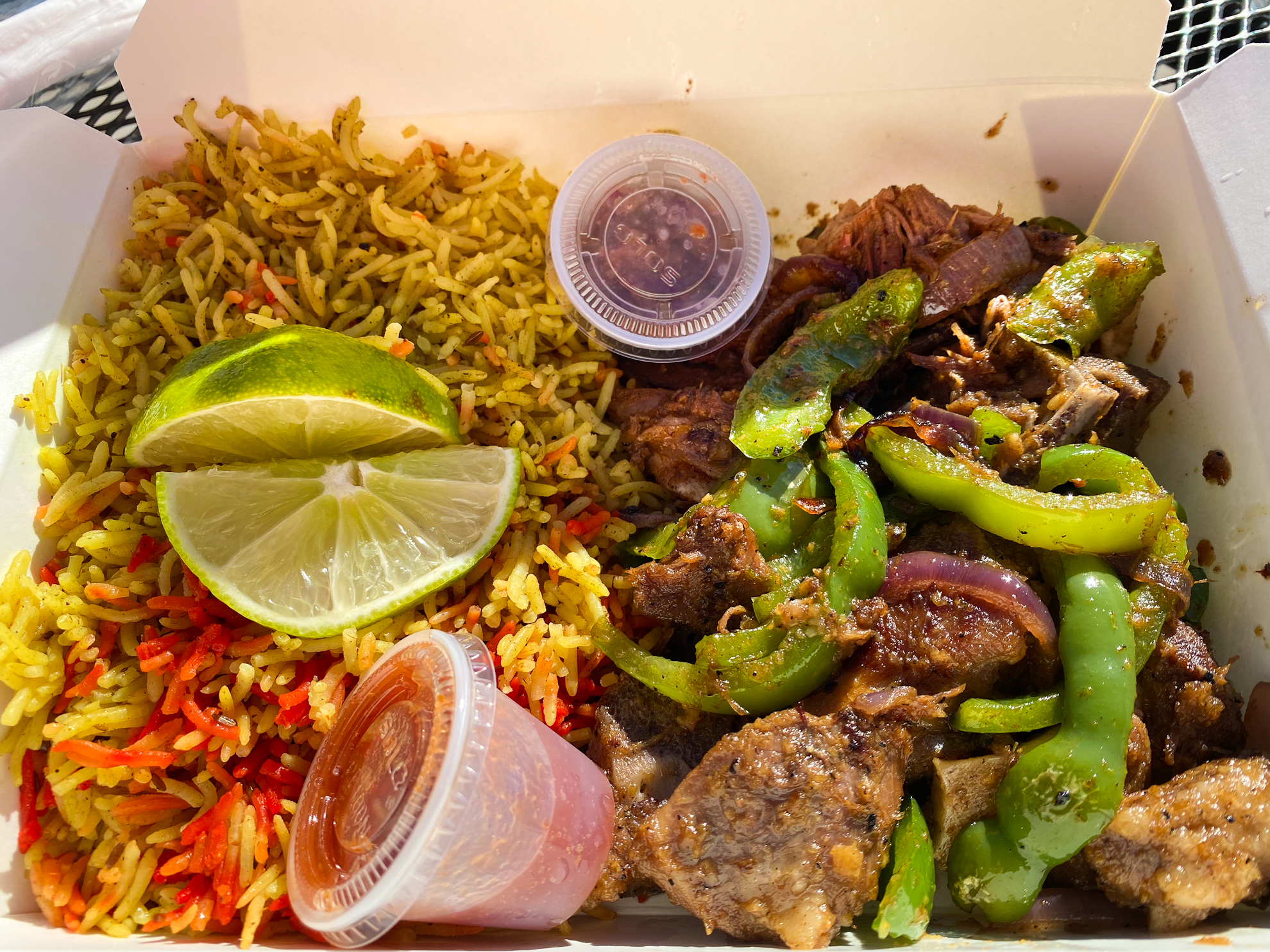Introduction: Overview of Somalia’s Food Culture
Somalia is a country located in the Horn of Africa, known for its diverse range of cultural traditions. One of the most important aspects of Somali culture is their cuisine, which is influenced by a mixture of Arab, Persian, and African flavors. Somali food is typically made with fresh and locally sourced ingredients, and there are many customs and etiquettes that are unique to the Somali dining experience.
Traditional Somali Cuisine: Popular Dishes and Ingredients
Traditional Somali cuisine features a variety of dishes made with meat, fish, and vegetables. Some of the most popular dishes include sambusa, a pastry filled with minced meat or vegetables; hilib ari, a grilled goat meat dish; and bariis iskukaris, a rice dish cooked with spices and meat. Somali cuisine is heavily influenced by Islamic dietary laws, meaning that pork and alcohol are strictly prohibited. Instead, Somalis often enjoy camel or goat milk as a popular beverage alongside their meals.
Local Food Customs: Eating Habits and Meal Times
In Somali culture, communal eating is an important part of daily life. Meals are typically eaten with the right hand, as the left hand is considered unclean. It is common for people to sit on a mat or low table during meals, and it is considered impolite to start eating before everyone has been served. In addition, there are specific meal times that are observed in Somali culture, such as a light breakfast in the morning, a larger midday meal, and a lighter meal in the evening.
Dining Etiquettes: Proper Table Manners and Gestures
Somali dining etiquette emphasizes respect and hospitality towards guests. It is customary for guests to be served first, and for the host to continuously offer more food throughout the meal. It is also important to avoid wasting food, as food sharing is considered a sign of generosity. When eating, it is polite to use only the right hand, and to avoid burping or making loud noises while eating.
Food Sharing: Importance of Hospitality and Generosity
Sharing food is an important part of Somali culture, and is seen as a way to show hospitality and generosity towards others. It is common for people to share their food with neighbors or strangers, and for guests to bring gifts of food when visiting someone’s home. This custom is deeply ingrained in Somali culture, and is seen as a way to build strong relationships and foster a sense of community.
Conclusion: Respecting and Embracing Somali Food Culture
Somali food culture is a rich and diverse tradition that is deeply rooted in the country’s history and customs. To fully appreciate this cuisine, it is important to respect and embrace the local food customs and dining etiquettes. By doing so, visitors can gain a better understanding of Somali culture and build meaningful connections with the people they meet. Whether enjoying a meal with friends or trying new dishes at a local restaurant, embracing Somali food culture is an important part of any visit to this fascinating country.

